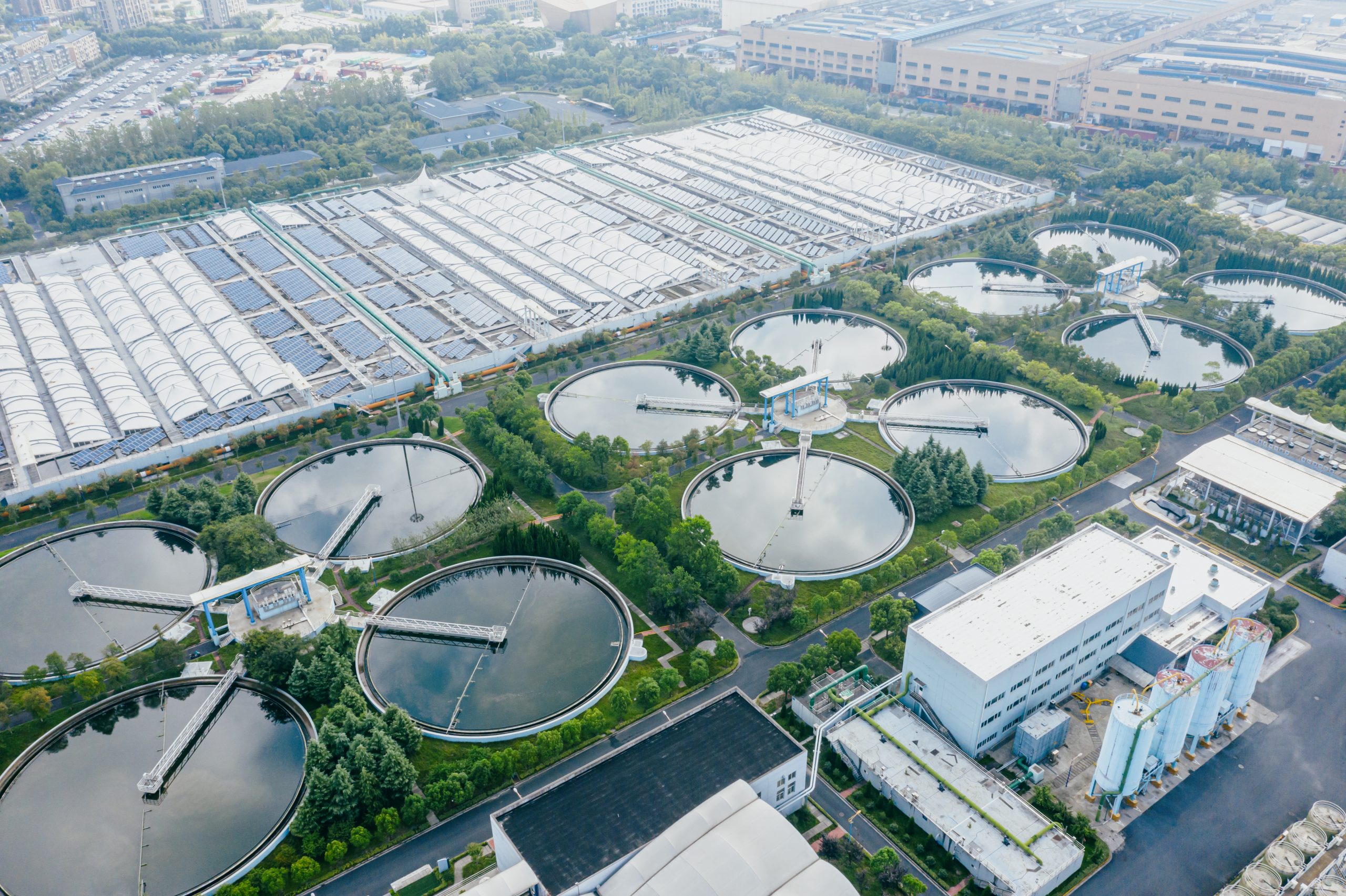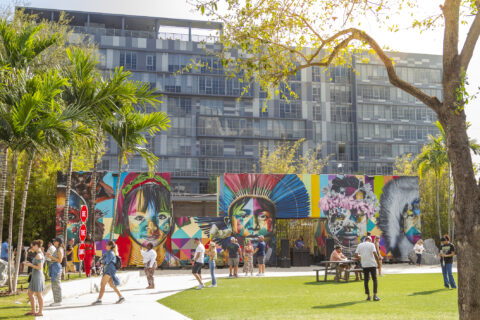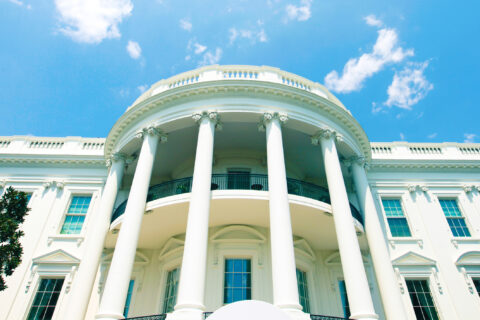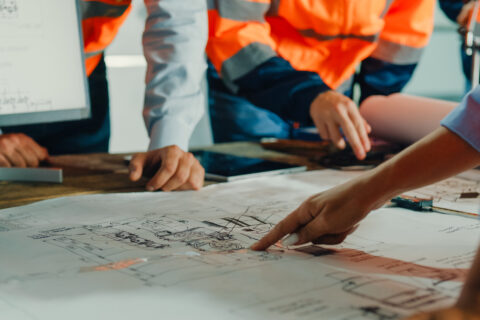Last week, the House Transportation and Infrastructure Committee passed two key infrastructure bills on a bipartisan basis to support our nation’s water and transportation infrastructure needs. The day-long markup was an important a first step toward passing a comprehensive infrastructure bill in the House and came as bipartisan negotiations expand now with coalitions of Senators and “Problem Solvers.” With bills now moving in the House and the Senate, now is the time for cities to speak up about the infrastructure needs in your community.
Here’s what city officials need to know before you reach out to your Members of Congress on each of these bills.
INVEST in America Act (H.R. 3684)
The INVEST in America Act, which passed out of committee 38-26, is a five-year, $547 billion surface transportation reauthorization bill that directs federal investments in roads, bridges, transit and rail. This legislation invests to make communities safer, more equitable, and better connected as well as tackling the significant role transportation plays in America’s carbon footprint.
Roads & Bridges
- Increasing the local share of the Surface Transportation Block Grant up to 60%.
- Makes our roads safer with a significant boost to roadway safety programs, record levels of investment in walking and cycling infrastructure, complete streets planning and smarter road design, and safe routes to schools.
- Dedicates $32 billion for bridge funding to ensure bridges in communities of all sizes are safer, more reliable, and more resilient.
- Helps elevate local priorities with $14.9 billion for 1,473 selected Member Designated Projects (also known as transportation earmarks).
- Increasing investment on roads and bridges by 54% with an emphasis on fixing existing infrastructure.
- Focuses transportation planning to promote mobility and facilitate access to jobs and other essential services; and reconnects communities that were divided by highways with a new $3 billion program to correct planning mistakes of the past.
- Dedicates $8.3 billion for activities targeted to reduce carbon pollution and provides $6.2 billion for mitigation and resiliency improvements; also advances the development and utilization of green construction materials.
- Targets investments to areas of persistent poverty, rural communities, Tribes, and other continually disadvantaged areas.
Transit
- Makes record investments in transit with $109 billion to increase routes, reduce the transit maintenance backlog, and provide more frequent service, resulting in better options for riders, improved environmental outcomes, and increased access to jobs and essential destinations.
- Scales up investment in zero-emission transit vehicles, supporting fleet conversion to reduce local air pollution and related health impacts.
- Strong provisions for workforce training are included to ensure America can create jobs.
- Funds and incentivizes transit-oriented development to make transit more convenient to where people live and work and build sustainable, walkable communities.
- Increases funding for rural transit by more than 50 percent in the first year and sets aside $50 million a year for rural persistent poverty communities. Creates a pilot to improve flexibility in paratransit trips, allowing for brief stops such as childcare pick-ups and drop-offs, and short trips to the grocery store, pharmacy, or bank.
- Creates a new reduced-fare pilot program to improve access for low-income riders. Doubles the set aside for urban areas formula dollars based on low-income population and deep poverty census tracts, and directs transit agencies to serve these populations.
- Streamlines the Capital Investment Grant program to improve project delivery, reduce red tape, and achieve cost savings for transit agencies.
- Creates new programs to address several pressing transit challenges—improving compliance with the Americans with Disabilities Act, and addressing transit deserts by providing expanded transit service to unserved and underserved communities.
Rail
- Invest $95 billion in rail which includes triple the funding for Amtrak ($32B), allowing for enhanced service, ADA upgrades, and investments to renew and support service on the Northeast Corridor and long-distance and state-supported routes.
- Improves rail safety by addressing highway-rail grade crossings needs, requiring additional rail safety inspectors, addressing trespasser and suicide fatalities, and eliminating gaps in railroad safety.
- Creates a federal blocked crossing program to collect data and enforce a 10-minute blocked crossing limit.
- Provides funding for corridor planning and development of high-speed rail projects, reducing traffic congestion and shortening travel times.
Water Quality Protection and Job Creation Act (H.R. 1915)
The bipartisan Water Quality and Job Creation Act (H.R. 1915), which passed committee by a vote of 42-25, would provide critical financing and funding for local government wastewater and stormwater projects. Specifically, the bill would authorize $50 billion in wastewater infrastructure investments over the next five years, including:
- $40 billion for the Clean Water State Revolving Fund (SRF);
- $2 billion for the sewer overflow and stormwater reuse municipal grant program;
- $1 billion in grants to municipalities to implement treatment standards for per- and polyfluoroalkyl substances (PFAS) and other emerging contaminants;
- $1 billion for grants to municipalities for watershed-based efforts to address wet weather discharges, promote stormwater best practices, undertake integrated water resource management, increase climate resiliency and improve cybersecurity;
- $1 billion in grants for alternative water source projects, such as wastewater or stormwater reuse, to augment existing water supplies;
- $500 million for grants to municipalities for the modernization of wastewater collection systems and stormwater management technologies;
- $250 million for grants to provide technical assistance to rural, small and tribal communities in the planning, design and construction of wastewater facilities; and
- $250 million in grants to assist low-income households install, repair or replace domestic septic systems, or to attach households with failing septic systems to public sewer systems.
Additionally, the bill includes provisions to help local governments address affordability issues, reduce climate change impacts and build community resilience, and support small and rural water systems. Specifically, the bill would:
- Require states to distribute a minimum of 20% (and a maximum of 50%) of their SRF funds to municipalities as grants to increase the affordability of wastewater infrastructure to local communities;
- Permanently codify the clean water “green reserve,” requiring states to dedicate 20% of their SRF funds toward green infrastructure, water- and energy-efficiency, and other efforts to increase the resiliency of utilities to climate change; and
- Allow states to use Clean Water SRF funding to promote workforce development and utility worker training and education programs.
Last month, the Senate passed a bipartisan comprehensive drinking water and wastewater package. To keep the infrastructure conversation moving forward, Democratic members of the House Energy and Commerce Committee have introduced the LIFT America Act (H.R. 1848), which would authorize $51.6 billion for investments in our nation’s drink water infrastructure over the next five years, as well as provide investments in broadband and clean energy.
Ahead of the markup, NLC encouraged Congressional leaders to continue on a bipartisan path “to deliver a transformational infrastructure bill for America’s communities that leaves no one behind.”
America’s cities, towns and villages are ready for Congress to come through with infrastructure programs that partner with local governments to get projects done.
Take Action
Let your member of Congress know that it’s time to invest in transportation, water, broadband and workforce development that serves our residents every day and keeps our economic engines moving.










